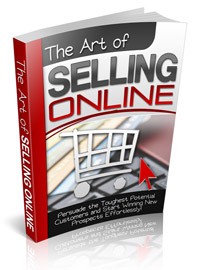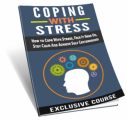 License Type: Master Resell Rights
License Type: Master Resell Rights  File Size: 4,143 KB
File Size: 4,143 KB File Type: ZIP
File Type: ZIP
 SKU: 31299
SKU: 31299  Shipping: Online Download
Shipping: Online Download
Ebook Sample Content Preview:
The best salesmen and saleswomen down through the ages have told the truth. However, there's nothing at all wrong with an element of spin; to sell a product, you must stress the benefits. The selling is all about ethics and honesty. The old days of consumers accepting whatever they get from the company is giving way to online reviews on third-party websites, where consumers hold companies to account and are quick to point out product failings and shortcomings.
You do not want to be on the wrong end of those reviews.
You want customers praising your products, and to do that you have to be truthful about what you will and won't do.
Customers expect you to sell to them.
They expect to pay a fair price for a fair product, so they don't mind coming into the transaction with the understanding that your business exists to sell products. There are selling strategies that follow the in the realm of ethical selling. Consumers expect to see them, and it's not a violation of integrity to try to sell as best you can. A good example is what's commonly called up-selling. If you were asked "Would you like fries with that?" at a fast food restaurant, that is a simple example of up-selling. If a customer buys a product and somewhere during the selling process you offer another product that is slightly more expensive but has more benefits, there's no ethical issue in reminding a customer of another product that you have that might meet his need better, even if the cost is higher. If you believe that your product actually does solve customer problems, then there's no violation of your conscience to offer another product that you have in addition to the one that the person has just bought.
In a similar way it's perfectly ethical to down-sell, or offer a customer a great deal if they've declined your first offer. Suppose that the person is interested in your products, but is not interested in spending the money. Is there another product you could offer that would meet their needs but cost less? There's no problem at all in offering a lesser priced product if price indeed was the issue. You're simply offering another option that the person may or may not accept.
Always think of yourself and how you react when you're purchasing things online.
If you would like to click away from an offer how many pop-up boxes will you tolerate before you become frustrated? Internet marketers have all sorts of different opinions, but most ethical Internet marketers would agree that one or two pop-up boxes is acceptable, but past that point there is an increasing possibility of frustration as the person visiting your website is trying to exit but is continually blocked from doing so. Imagine yourself in a retail setting in which you decided not to buy anything that day. Can you imagine if the salesman blocked your access to the door? How would you feel about the owner of the store? That's exactly the feeling you do not want to have in the mind of your potential customer.
If someone would like to click away from your offer, then you have to allow it. If you block the door, you may lose a customer for life.
- File Size:4,143 KB
- License: Master Resell Rights
- Category:Ebooks
- Tags:2013 Ebooks Master Resale Rights








